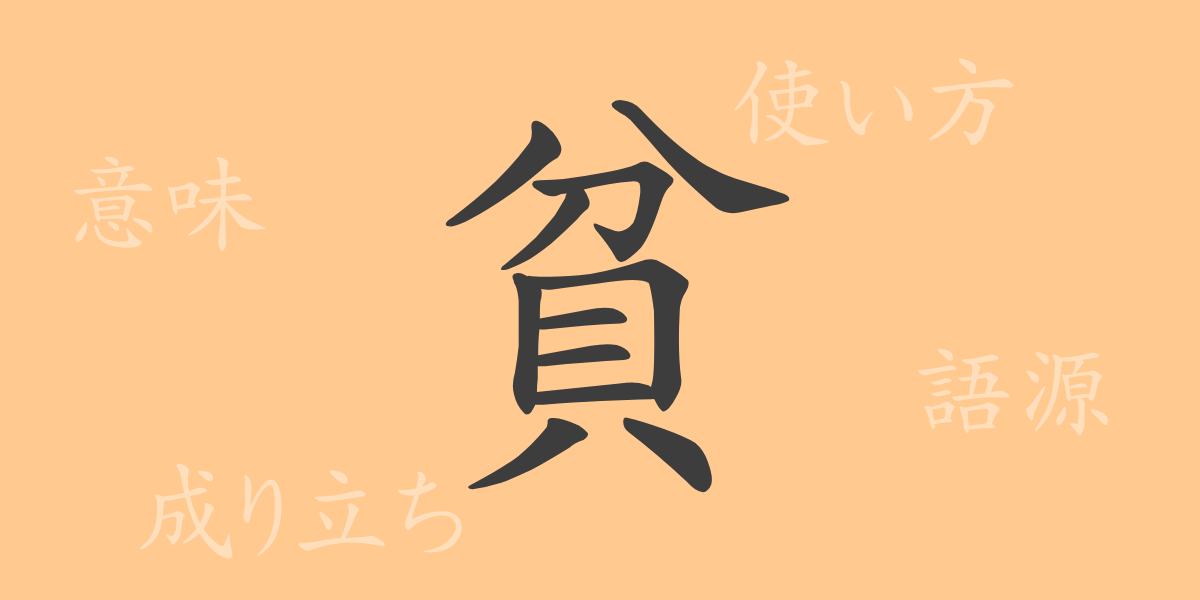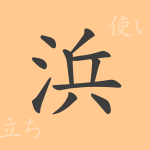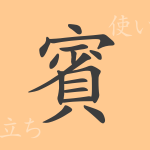Commonly used kanji (かんじ) characters in Japan are a collection of characters frequently used in daily life. Among them, “貧” (ひん, hin) is one of the important kanji characters that describes a state of lacking not only economic wealth but also mental richness. In this article, we will delve deeply into the history, meaning, and usage of the character “貧” (ひん, hin) in Japanese culture.
The Origin of “貧” (ひん, hin)
The kanji “貧” (ひん, hin) has its origins in ancient China. It evolved from oracle bone script, which is a form of pictographic writing. Originally, it derived from the character “分” (ぶん, bun), which means “to divide.” This character combined with the symbol “貝” (かい, kai), which represents wealth, to form “貧” (ひん, hin), meaning “poor” or “lacking in wealth.”
Meaning and Usage of “貧” (ひん, hin)
The kanji “貧” (ひん, hin) means “poor” and refers to a state of economic deprivation. It is also used to describe a lack of mental richness. The character is often used in words such as the adjectival noun “貧しい” (まずしい, mazushii) and the noun “貧乏” (びんぼう, binbō), appearing in various contexts from everyday conversation to literary works.
Reading, Stroke Count, and Radical of “貧” (ひん, hin)
The kanji “貧” (ひん, hin) has specific readings and writing styles in Japanese.
- Reading: The on’yomi (音読み) reading is “ヒン” (ひん, hin), and the kun’yomi (訓読み) reading is “まずしい” (まずしい, mazushii).
- Stroke Count: “貧” (ひん, hin) has a total of 11 strokes.
- Radical: The radical is 貝 (かいへん, kaihen), which is commonly associated with characters related to wealth or money.
Idioms, Proverbs, and Phrases Using “貧” (ひん, hin)
There are many idioms, proverbs, and phrases in Japanese that include the kanji “貧” (ひん, hin). For example, “貧乏ゆすり” (びんぼうゆすり, binbōyusuri) refers to the act of shaking one’s leg unconsciously, symbolizing wasteful behavior. The proverb “貧すれば鈍する” (ひんすればどんする, hinsurebadonsuru) means that poverty dulls the mind. These expressions reflect how poverty is perceived within society and culture through language.
Summary of “貧” (ひん, hin)
The kanji “貧” (ひん, hin) not only denotes economic status but also encompasses deeper meanings related to mental aspects. Through this kanji, we can deepen our understanding of inequality and social issues. Additionally, idioms and proverbs containing “貧” (ひん, hin) convey wisdom and lessons that have been passed down through Japanese language for generations. Addressing poverty remains a critical theme that society as a whole must continue to consider.

























